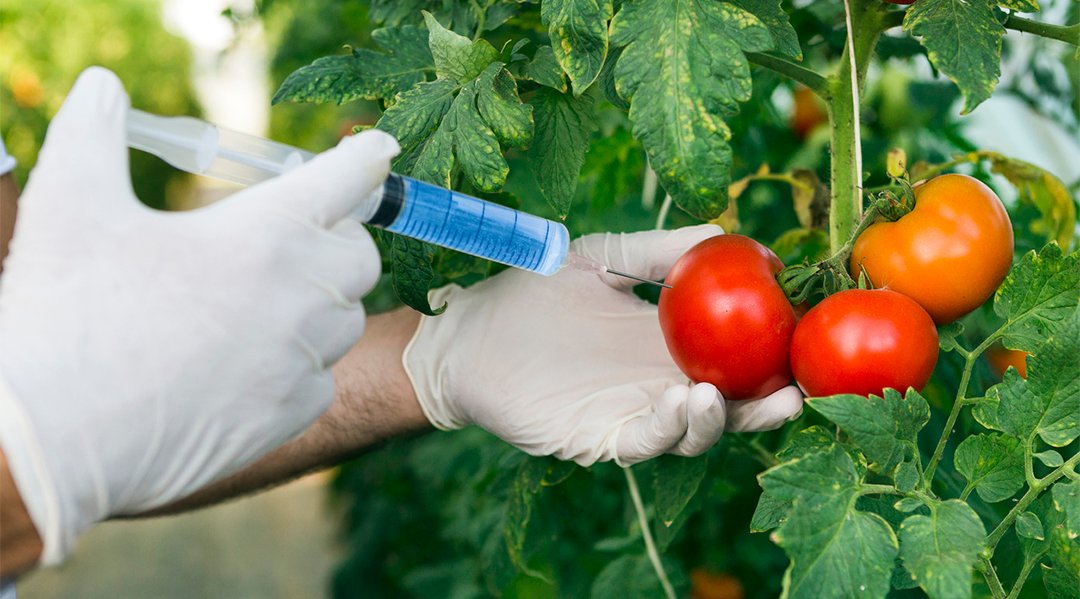As Africa battles the overlapping crises of food insecurity, economic instability, and public health challenges, the idea of embracing genetically modified organisms (GMOs) is being aggressively pushed by powerful multinational corporations and their local allies. These corporations promise increased yields, resistance to pests, and climate-resilient crops. But beneath the glossy surface lies a dangerous reality: GMOs pose significant health, environmental, socio-economic, and ethical risks that Africa; and particularly Nigeria cannot afford to ignore.
A Trojan Horse Disguised as Progress
Advocates of GMOs tout them as a magic bullet to solve Africa’s food challenges. Yet, global evidence and lived realities in other parts of the world suggest otherwise. In countries like India, Argentina, and parts of the United States, GMO adoption has led to monopolization of seeds, the collapse of small-scale farming, ecological damage, and even spirals of farmer indebtedness and suicide.
GMO seeds are patented, meaning they are owned and controlled by foreign biotech giants. Nigerian farmers who adopt these seeds will be forced to buy them annually, unlike traditional practices of saving and replanting seeds. This corporate dependency erodes national food sovereignty and leaves Nigerian agriculture vulnerable to global capitalist whims.
Health Risks Cannot Be Ignored
One of the gravest concerns surrounding GMOs is the health impact on humans. While biotech companies claim GM foods are safe, several independent studies suggest potential links between GMO consumption and health issues such as:
-
Allergies and food intolerances
-
Gastrointestinal disorders
-
Immune system dysregulation
-
Hormonal imbalances and infertility
-
Cancer risks associated with glyphosate-based herbicides like Roundup, often used alongside GMO crops
Importantly, many of these concerns remain under-researched, especially within African populations who have unique genetic, nutritional, and environmental profiles. Without rigorous, long-term local studies, embracing GMOs amounts to making Nigerians guinea pigs in a global biotech experiment.
Environmental Damage Is Irreversible
GMO cultivation encourages the use of synthetic herbicides and pesticides, which contaminate soil, water bodies, and surrounding ecosystems. The resulting biodiversity loss threatens pollinators like bees, essential for food production, and contributes to the extinction of indigenous crop varieties.
In Nigeria’s fragile environment, already under threat from desertification, oil spills, and deforestation; GMO agriculture would only accelerate ecological decline. Once native species are contaminated through cross-pollination with GMO crops, the damage becomes irreversible.
Socio-Economic Colonialism
Accepting GMOs entrenches neo-colonial economic models. Instead of empowering Nigerian farmers with indigenous knowledge and agroecological techniques, GMOs funnel profits back to foreign corporations. It transfers control of the food system from local producers to patent holders in laboratories abroad.
Moreover, once Nigeria becomes a dumping ground for genetically modified food imports often rejected by European markets, local food industries and markets suffer. This economic displacement is not development; it is dependency masked as modernization.
Undermining Traditional Knowledge and Food Culture
Nigeria boasts a rich agricultural heritage and diverse food culture. From millet in the north to cassava and yams in the south, indigenous farming systems have sustained communities for generations. GMOs threaten this heritage by marginalizing local crops and knowledge systems, reducing cultural biodiversity in favor of a few genetically engineered super-crops.
This homogenization of agriculture isn’t just a loss of food rather a loss of identity, history, and resilience.
The Precautionary Principle Must Prevail
In light of these risks, NewsOnline Nigeria strongly urges Nigerian policymakers, farmers, and the wider public to adopt the precautionary principle: Do not accept technologies whose long-term consequences are uncertain and potentially harmful.
Rather than importing foreign biotech solutions, Nigeria should invest in agroecology, regenerative farming, and research in indigenous agricultural science. Empowering rural farmers, improving irrigation, strengthening local seed banks, and supporting organic practices will provide sustainable and safe solutions to food insecurity without the toxic baggage of GMOs.
Conclusion
GMOs are not the silver bullet they are made out to be. They are, in many respects, a sophisticated form of bioeconomic control dressed in humanitarian rhetoric. Africa must reject this illusion. Nigeria must rise above the pressures of foreign lobbies and chart an agricultural future that is sovereign, safe, and sustainable.
Let us feed ourselves with dignity not with dependency.
NewsOnline Nigeria Editorial Board
August 3, 2025
